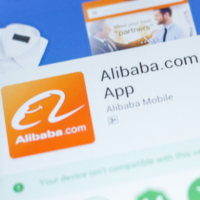Alibaba Goes B2B in US, But Success Against Amazon Depends on Sellers


Alibaba has set its sights on the US business-to-business (B2B) market, opening its platform to manufacturers, wholesalers, and distributors in the country and pledging to expand the reach of small and midsize businesses (SMBs).
The move would allow these smaller companies to sell their goods on Alibaba's online marketplace, Alibaba.com, which was previously set up to connect wholesalers and manufacturers in China with overseas buyers, primarily those in the US.
The new channel was unveiled alongside a network of industry partners as well as nationwide tour to guide business owners about Alibaba's platform, the Chinese vendor said, which aims to help 30 million SMBs in the US sell more effectively via its marketplace.
The US B2B e-commerce market was expected to hit USD$1.8tn (£1.44tn) by 2023 and account for 17% of all B2B sales in the country, according to Forrester.
Globally, this segment was projected to be double that of the B2C (business-to-consumer) online market, churning revenues upwards of USD$6.7tn (£5.35tn) by 2020, predicted Frost & Sullivan.
Alibaba Group's B2B head of North America, John Caplan, said: "Alibaba aims to empower entrepreneurs and help them succeed on their own terms. With 10 million active business buyers in over 190 countries and regions, we are reshaping B2B commerce by providing the tools and services needed for US SMB companies to compete and succeed in today's global marketplace."
Launched in 1999, Alibaba.com currently serves 10 million active buyers and some 150,000 sellers.
With its latest move, the Chinese vendor is gunning to diversify its product offering beyond its domestic market and ecosystem, according to eMarketer's principal analyst Jillian Ryan. She noted that some 90% of products sold on the e-commerce platform were from factories in China, which often manufactured custom goods-to-order for international buyers.
The analyst added that buyers on Alibaba were from developed markets such as Canada, India, Australia, and the UK, and these consumers wanted the option to source goods from the US.
Ryan said: "Alibaba says this announcement will enable US B2B SMB sellers to reach a global audience." While that may be true, Amazon Business' success in selling commodity goods from third-party sellers on its marketplace is another likely driver for Alibaba's new initiative.
"While this news is big, much is still up in the air about the impact of this move. Alibaba does have a few select pilot sellers and two major anchor sellers," she said, pointing to Office Depot and Robinson Fresh. "But, in order for this to make waves long term, SMB adoption must come along."
The analyst said Alibaba's success here would depend on whether it could recruit a robust community of successful sellers, which she noted was critical in the Chinese e-commerce operator's ability to go head-to-head with Amazon in the B2B commodity market.
Alibaba did say it was looking to encourage US SMBs to join its platform through a network of industry partners, which would provide the goods and services these smaller enterprises needed to compete globally.
These included the two anchor sellers Office Depot and Robinson Fresh, the latter of which was the produce business unit of logistics company C.H. Robinson. Both sellers just launched their stores on Alibaba.com, which hoped their strong brand recognition and wide product inventory would help drive traffic to the marketplace. This then would fuel traffic to smaller sellers as well, the Chinese vendor said.
Marketing tools for US suppliers
Alibaba also was offering a bunch of new marketing tools and features to support new US suppliers and help ease their transition to its marketplace. It said that these sellers would have access to an "easy-to-use" interface for building and maintaining a digital store on its platform as well as customer relationship management (CRM) and communications tools to support their engagement with customers.
Alibaba said it also roped in software vendors and service providers, such as logistics operator ShipStation and jobs search platform Indeed, and other companies across the country and region that offer exclusive offers, discounts, and educational content to support the SMBs as they scale.
In addition, these businesses could tap Alibaba's digital marketing tools to target potential customers and online payment mechanisms. The Chinese company said it also had a dedicated team to support its SMB customers in US.
And as more sellers joined its platform, it added, buyers would be able to choose from different categories to source for goods including ready-to-ship and customised products.
Alibaba's president Michael Evans told reporters at the company's New York office: "We're creating the ability for small businesses and large wholesalers in the US to source and trade with each other and for small businesses to sell their products to countries all over the world."
"Our US strategy, if you look back four years, started with an understanding that our competitive advantage was not to come here and try and do what Amazon does. It's to basically take the great American brands and sell their products to the Chinese consumer on our platform who loves American products--and we've been phenomenally successful with that," Evans said in a report by Business Insider.







Follow Fast Growth Brands